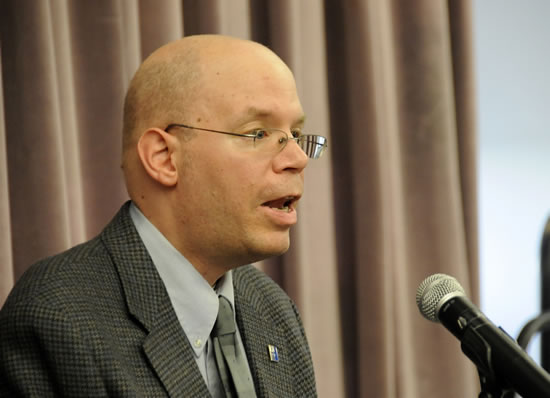Dr. Christopher Rosa
2013 Unsung Hero Award
Third NYCitywide Special Education Conference
January 26, 2013, Hunter College
Seeing the Real Chris Rosa
By Chris Rosa

“Don’t worry Chris. Someday you’ll meet someone who’ll look past the wheelchair and see the real you.”
These words of consolation were uttered by one of my best friends, in the middle of a sleepless night during my sophomore year in college, in the wake of my being turned down for a date by the current “girl of my dreams.” These words were ones of kindness, of compassion, of encouragement, spoken with the most supportive intentions.
And they burned like salt in an open wound.
These words stung not because I was still smarting from rejection. After all, in college dream girls shot down amorous sophomores at least once a week. Rather, these words hurt because they were spoken by one of my closest friends — someone I thought knew me as well as anyone in the world. If she expected these words to bring me comfort, how could she, or anyone else for that matter, begin to understand me?
College represented a coming of age, an awakening for me, as it does for thousands of American college students with disabilities each year. In college, for the first time I truly appreciated that I was part of a larger community of people with disabilities. This community held an empowered understanding of what it meant to be a person with a disability, as opposed to the more pitiable, stigmatizing concept of disability typically held by contemporary American culture.
Although I could not yet fully and clearly articulate this new understanding, I knew intuitively that it did not involve surrounding myself with people who were “willing to look past the wheelchair” to find “the real me.” In fact, I understood that anyone who looked past my wheelchair missed “the essential Chris.”
I now realize that the angst I felt over my dear friend’s words largely resulted from a subtle yet significant clash of cultures. In short, I interpreted her remarks as a member of a burgeoning disability culture — an empowered way of understanding disability that has transformed generations of students with disabilities and the institutions that serve them.
